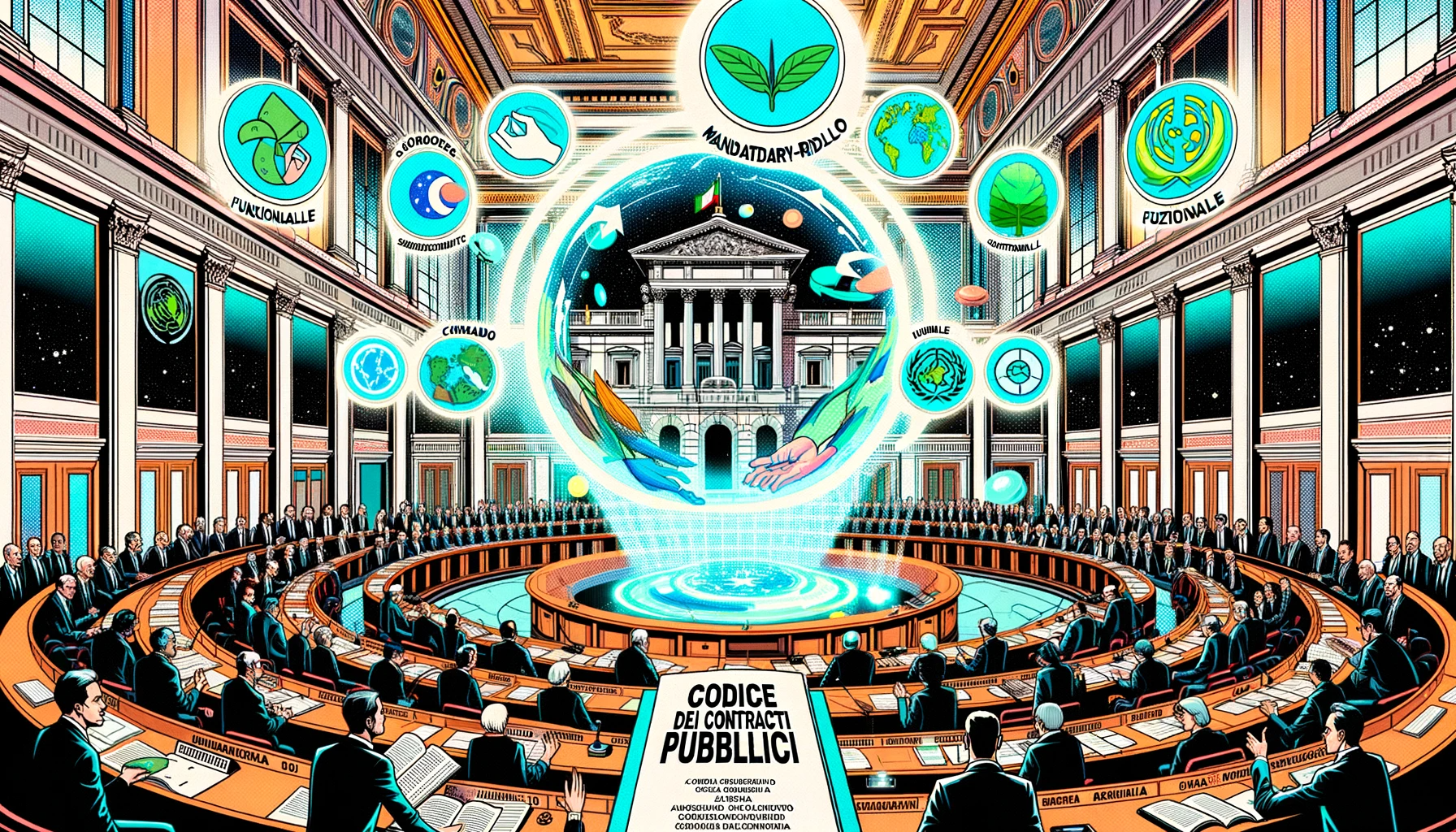Public contracts

The Civil Service in Poland: its status in the state and its evolution
Irene Lipowicz | 17 July 2023 | Issue Public Administration and the Transformation of Civil Service: A Comparative (Law) Perspective (2023)
This article analyses the evolution of the political position of the civil service in Poland, against the background of the construction of the civil service recognised by European doctrine. The paper presents the first comprehensive statutory regulation from 1922, with an already mature structure, to which all subsequent democratic regulations referred, sometimes polemically. The second part first shows the destruction after 1950 of the then so professional civil service, combined with the introduction - by force - again of Russian models, including a poorly paid administration, executors of decisions made in a huge party apparatus. The reconstruction of the civil service could not take place until after 1989, and was done under the strong influence of French doctrine and practice, including an attempt to create a dedicated school - the National School of Public Administration. The conclusion shows that the regulation currently in force, which requires revision, lowers employment standards in the civil service, breaks with the principle of competitive and open recruitment for senior positions and undermines the principle of neutrality.
Read More
Public procurement and environmental sustainability: from a “rigid-mandatory” to a “functional” approach?
Andrea Maltoni | 12 July 2023 | Issue 3/2023
This article analyses the new text of the Public Contracts Code with reference to the principles of sustainable development and environmental protection, neither of which are expressly mentioned among the new provisions. This examination provides an opportunity to reconstruct, according to Eu and national law, the role of the contracting authorities in pursuing environmental sustainability through public procurement. The approach followed in the new Code seems to be in line with the previous mandatory-rigid approach. Nevertheless, according to the principle of trust, corrective “functional” measures can be adopted to ensure that the processes of public procurement minimize damage to the environment and foster innovation.
Read More
The special urban planning and building regime relevant to of public works
Cristiano Celone | 21 April 2023 | Issue 2/2023
Public works constitute one of the main objects of ordinary urban planning and building regulations. However, since the 1970s, laws have been gradually introduced with the effect of derogating either from the provisions of the general land use plan or from the general discipline on authorization procedures to build. The decree-laws n. 77/2021 and n. 36/2022 have continued this trend with reference to projects necessary to achieve the strategic objectives of the European Union for the country's ecological and energy transition included in the National Recovery and Resilience Plan (PNRR) and the Integrated National Plan for Energy and Climate (PNIEC). This paper explains the causes of this substantial "deplanning" of public works the special regimes identified by the consolidated text on construction.
Read More
On the centralization of contracting authorities with regard to public procurement.
Mario Rosario Spasiano | 23 January 2023 | Issue 1/2023
The paper analyses how the “culture of suspicion” hinders the contractual activity of public administration. The “culture of suspicion” consists in the perception that every negotiation procedure is the harbinger of crimes and/or “maladministration”. The effects of this “culture of suspicion” consist of immobilism and inertia, since they inhibit the full recourse to discretionary and efficient actions, so that public officials avoid choices which can be risky in terms of penal, civil and administrative liability. In this context, the idea of contracts awarded by central purchasing bodies (contracting authorities) can play a crucial role. This is because the attribution to a single body of the competence to buy goods and services on the market, in addition to achieving positive “economies of scale”, can also increase the professionalism of the public officials operating within the contracting authorities and promote the transparency of tendering procedures. The paper focuses also on a critical analysis of the current regulatory framework, both at the national and EU level, trying to evaluate and propose necessary reforms and improvements.
Read More
Qualifications of contracting authorities: insights into the role of the National Anti-Corruption Authority (ANAC) in the field of Public Procurement
Paola Lombardi | 28 December 2022 | Issue 4/2022
Challenges arising from the complex system of reforms put in place by Italy, as a response to the pandemic, bring into question the current role played by the National Anti-Corruption Authority (ANAC) in the field of Public Procurement. This is especially true in light of the provisions of PNRR, the Public Contracts Code and the Enabling Law 78/2022. This paper critically reflects on the role of the ANAC, highlighting the evolution of ANAC's role in time of innovation, with particular reference to the qualifications of contracting authorities.
Read More
The digitalization of tendering procedures: from Public Procurement Code to Public Procurement digitalization decree
Elio Guarnaccia | 19 December 2022 | Issue Public Administration facing the challenges of digitalisation (2022)
The present study aims to retrace the digitalization process of the public procurement starting from the previsions of the legislative decree n. 50/2016 to Public Procurement digitalization decree n. 148/2021, embraced with over four years delay compared with the previsions. For this purpose, we face the extremely wide jurisprudential production in matter of telematic tendering procedures. Namely, the decree is inserted in a context in which the jurisprudence has extensively addressed the issues related to the digitalization of the tendering procedures, attempting to make this heavy jurisprudential stratification, not devoid of inconsistencies and relevant developments.
Read More
Exclusion from public tender procedures for serious professional misconduct: the Regional Administrative Court for Sardinia limits the discretion of the Contracting Authority
Pietro Losciale | 30 October 2022 | Issue 4/2022
Article 80, paragraph 5, letter c) of the Code of Public Contracts provides for exclusion from participation of economic operators who have been convicted of serious professional misconduct affecting their integrity or reliability. The rationale for this prevision is «the need», of the public administration, «to ensure the reliability of those who propose themselves as contractors» (Council of State, decision no.1412, of April 11, 2016) through an evaluation process to determine their integrity. This provision has been the subject of a recent decision by the Regional Administrative Court for Sardinia: no. 646 of October 3, 2022. That decision focused on the discretion left by this provision – at the point where it provides for the exclusion of the economic operator for serious professional misconduct on the basis of any means considered by the Contracting Authority as adequate. The decision has clarified how this evaluation presupposes a specific reasoning based on two levels: one objective and one relative, which considers both the gravity of the professional misconduct committed by the economic operator, and the prejudice that it may cause to the specific contract in question.
Read More
In the current emergency situation, national legislators attempt to manage the invariance in public procurements by means of analytical rules of mechanical application. The consequent regulatory chaos (in a continuous – almost inconsistent – reformulation of the rules) makes it preferable to manage the emergency through undetermined legal concepts (good faith, first of all), which better perform the homeostatic function in the legal system.
Read More
Simplification and digitalisation of public tenders post-covid: the Brescia Infrastrutture’s case
Gabriele Maria Brenca | 21 September 2022 | Issue 3/2022
The following paper shows how the introduction of electronic instruments and databases for contracting authorities, like the e-procurement portal “Tutto Gare” used by Brescia Infrastrutture S.r.l., has brought a substantial simplification in public commitment procedures, allowing for the adjudication of public tenders even during the lockdown period caused by the COVID–19 pandemic. However, the path to digitalisation of tendering procedures hasn’t been concluded yet. The hope is that in the aftermath of the pandemic all the information concerning economic operators and tendering procedures could be found on uniform and centralized databases (like the so-called Economic Operator’s Dossier ex art. 81, c. 4, d.lgs. n. 50/2016), which will help both the contracting authorities in the selection of the contractor as well as the economic operators themselves.
Read More
The simplification of public contracts: recurring “utopia” or an opportunity to be seized?
Mario Gorlani | 5 September 2022 | Issue 3/2022
The paper aims to reflect on legislator’s vain and repeated attempts to simplify the regulations and procedures concerning public contracts. The attempts have mainly been through emergency responses which often create uncertainty and difficulties in interpreting and applying rules. The author urges the pursuit of legal stability and a true simplification through the development of discretionary powers, professionalism and responsibility on the part of the contracting authorities.
Read More